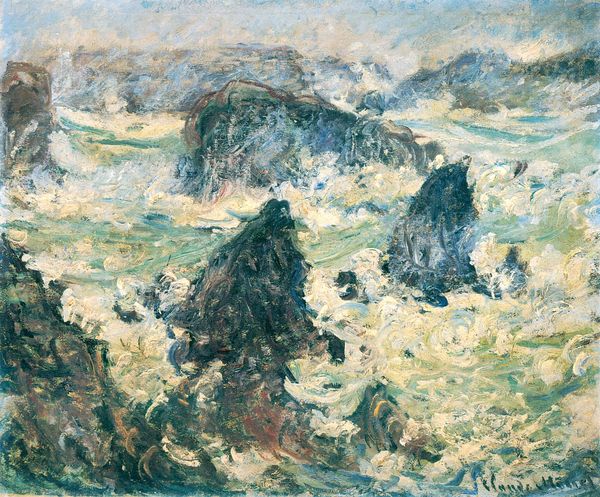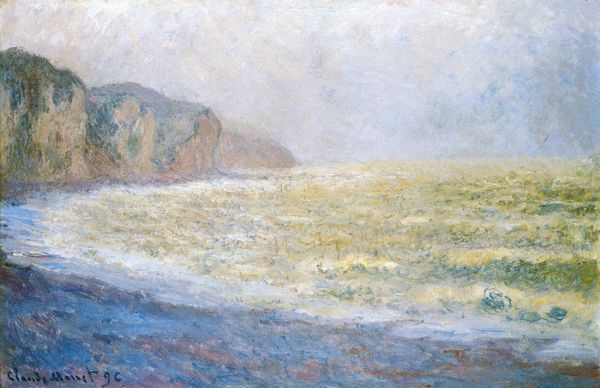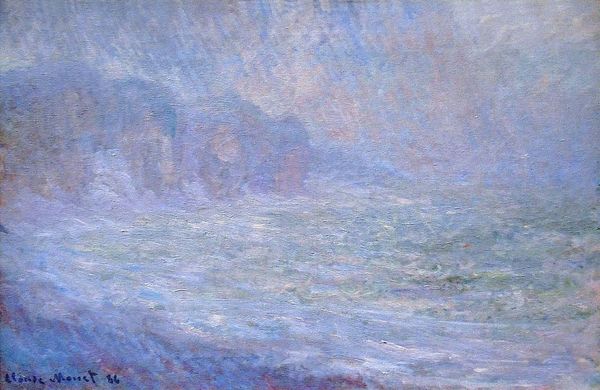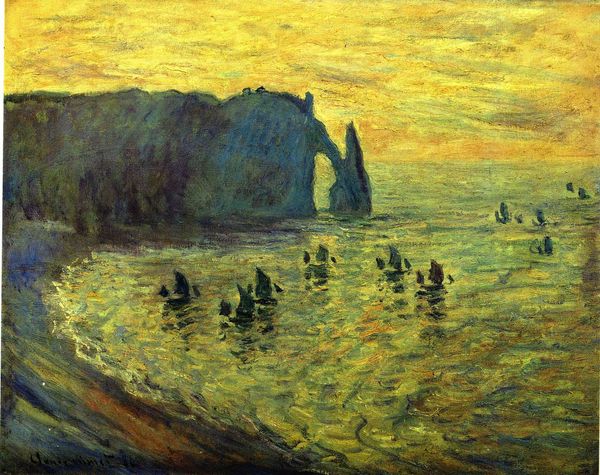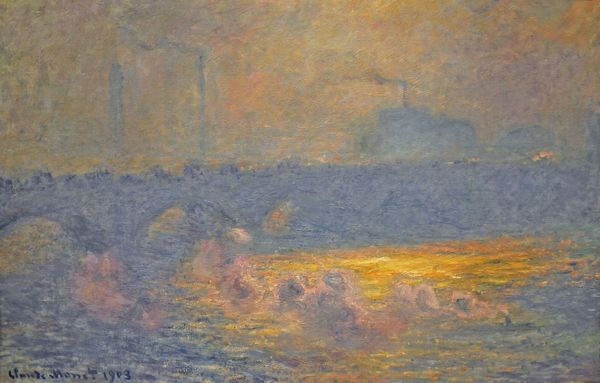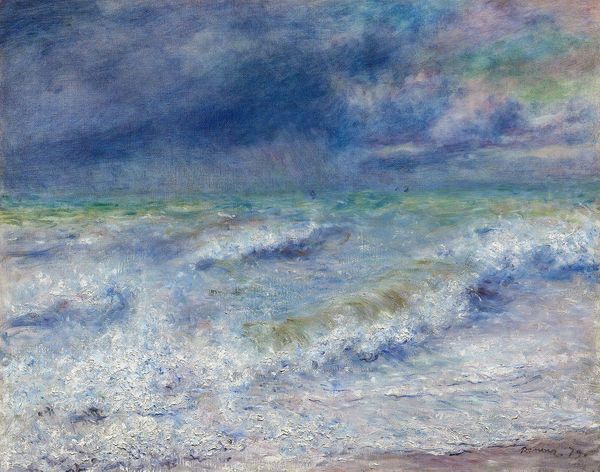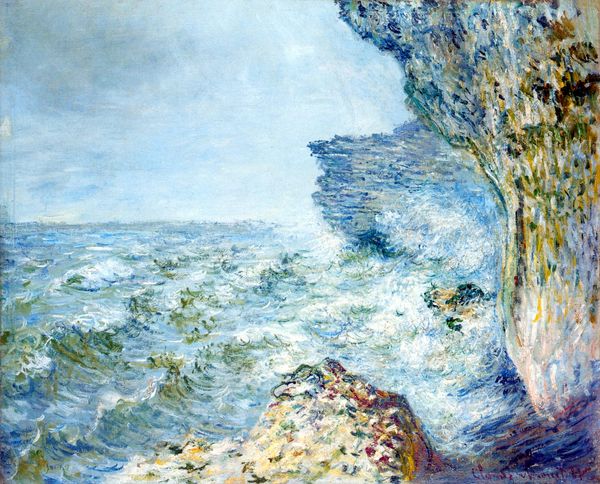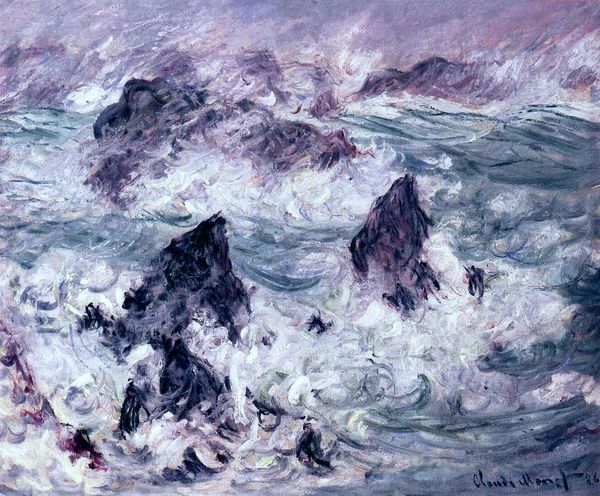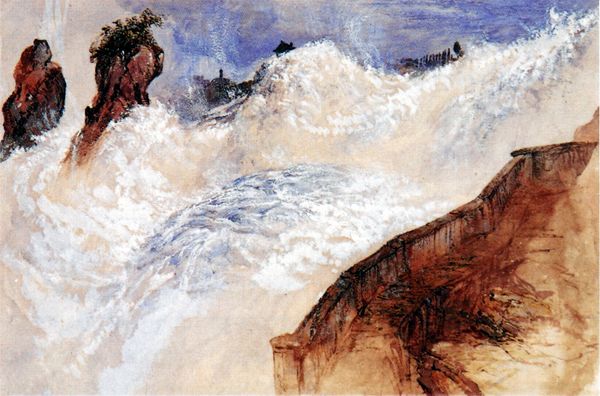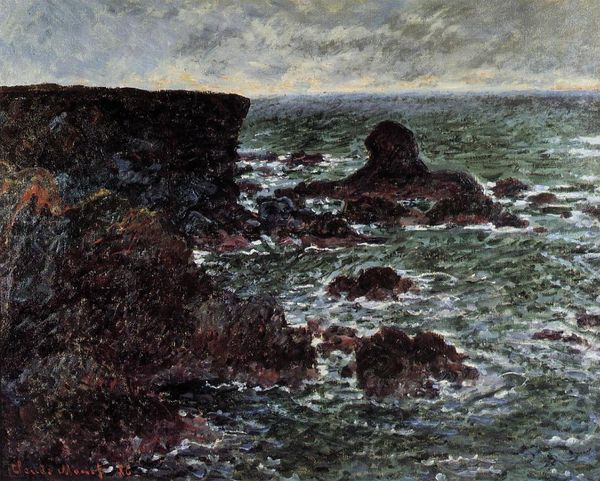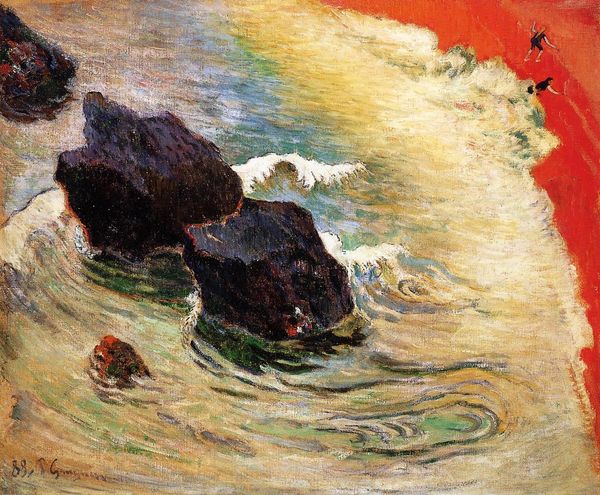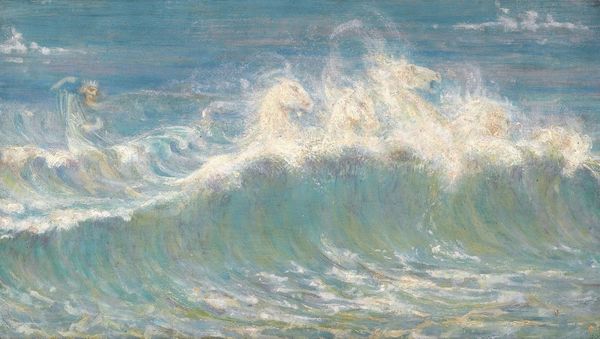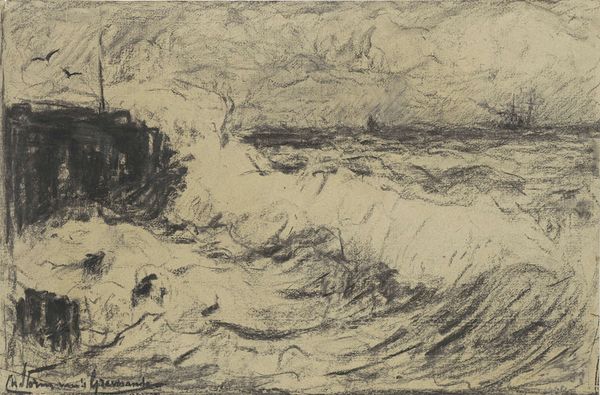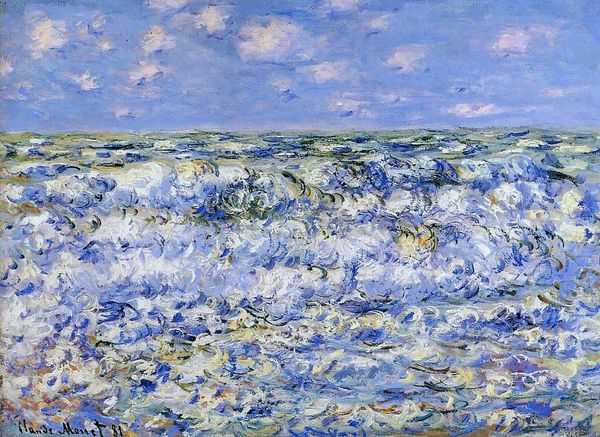
painting, plein-air, oil-paint
#
cliff
#
painting
#
impressionism
#
plein-air
#
oil-paint
#
landscape
#
impressionist landscape
#
rock
#
seascape
#
water
Dimensions: 81.5 x 65 cm
Copyright: Public domain
Editor: This is Claude Monet's "Storm, off the Coast of Belle-Ile," painted in 1886, using oil on canvas. It feels… tumultuous. I can almost hear the crashing waves. What catches your eye most about it? Curator: Immediately, I’m drawn to the dynamism inherent in its composition. Observe how Monet manipulates the paint: the short, broken brushstrokes don’t just depict water, they embody the chaotic energy of the sea. The color palette, dominated by greys and blues, reinforces this sense of drama, wouldn't you agree? Editor: Yes, the colors definitely contribute. But doesn't the placement of the rocks— jutting up so starkly— also impact that feeling? Curator: Precisely. Consider how the rocks anchor the composition, creating a visual counterpoint to the ephemeral nature of the waves. Monet plays with the tension between the solid and the fluid, the permanent and the transient. Can you identify any particular strokes of paint that exemplify this interplay? Editor: I think the lighter blues around the base of the rocks… they make the water look like it's both crashing against them, but also sort of eroding them away at the same time. Curator: An astute observation. This duality isn't merely representational; it speaks to the formal qualities of painting itself: its capacity to simultaneously construct and deconstruct an image, to evoke both presence and absence. It seems Monet asks what a seascape becomes if not something about mutability. Editor: That’s a fascinating way to think about it. I was so focused on the ‘storm’ aspect that I hadn’t considered the… philosophical elements. Curator: Art often transcends the merely representational to engage with broader philosophical inquiries. A close study of form and technique is vital for the art historical inquiry. Editor: Right, focusing on *how* it's painted, rather than just *what* is painted. Thank you. Curator: A productive conclusion for us, don’t you agree?
Comments
No comments
Be the first to comment and join the conversation on the ultimate creative platform.
